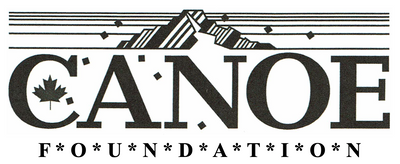We just returned from a trip to a local Farmers’ Market which we try to get to every week or so…we picked up some freshly picked sweet corn, which we eat ASAP to ensure the sugars don’t have time to turn to starch…what an absolutely delicious treat.
In my last blog, I talked about the insightful book “The Serviceberry” by author Robin Wall Kimmerer and how it had awakened me to a new perspective about how to relate to our planet Earth, and the Indigenous gift economy vs the market economy. I’m going to quote several excerpts along with some personal understandings to journey further along this path.
Eating with the seasons – a practice of taking what has been given to us, each in its own time…a way of honouring abundance…like spring asparagus…early summer strawberries…those August cobs of corn…I remember the plump and juicy blueberries we used to collect from the islands of the Georgian Bay while at Camp Hurontario and have them baked into the greatest pies ever…so called calendar plants. These treats taste so good, as they only come when it’s their time of the year – these foods are not forced to come to us at considerable financial and ecological costs…without the aftertaste of harm. Maybe, that’s why they taste so good.
In the language of the Anishinaabe peoples of the Great Lakes, the word for berry is ‘min’ (ie) strawberry (odemin)…interestingly, it is also the word for ‘gift’. So, in the naming of various plants, they recognize and acknowledge that whether it is the raspberry (mskadiismin), the apple (mishiimin) or the wild rice (manomin), that these are all gifts from their plant relatives, manifestations of their generosity, care and creativity and the unconditional love that plants have for people. In the presence of such gifts, gratitude is the intuitive first response.
In the Anishinaabe worldview, it is not just fruits that we understood as gifts, rather all of the sustenance that the land provides…everything that makes our lives possible. When we speak of these, not as things or natural resources or commodities, but as gifts, our whole relationship to the natural world changes. In a traditional Anishinaabe economy, the land is the source of all goods and services, which are distributed in a kind of gift exchange…the focus is on supporting the good of the people, not only an individual. Receiving a gift from the land is coupled to attached responsibilities of sharing, respect, reciprocity and gratitude…a recognition of indebtedness…it brings you the realization that your life is nurtured from the body of Mother Earth.
When an economic system actively destroys what we love, isn’t it time for a different system? Conceiving of something as a gift, changes your relationship to it in a profound way…I imagine if we acknowledge that everything that we consume is the gift of Mother Earth, we would take better care of what we are given. How we think ripples out to how we behave.
If we view these (above mentioned berries and other calendar plants) as property, they can be exploited as a commodity in a market economy. When something moves from the status of gift to the status of commodity, we become detached from mutual responsibility. We know the consequences of that detachment. Why then have we permitted the dominance of economic systems that commoditize everything? That create scarcity instead of abundance, that promote accumulation rather than sharing? We’ve surrendered our values to an economic system that actively harms what we love. Our metrics of economic value like GDP count only monetary value in the marketplace, of that which can be bought and sold. There is no room in these equations for the economic value of clean air and carbon sequestration and the ineffable riches of a forest filled with birdsong…an old growth forest is ‘worth’ far more as lumber than as the lungs of the Earth.
Recognizing “enoughness” is a radical act in an economy that is always urging us to consume more. Imagine the outcome if we each took only enough, rather than far more than our share. Climate catastrophe and biodiversity loss are consequences of unrestricted taking by humans. Might cultivation of gratitude be part of the solution? We live in a time when every choice matters.
Corn photo courtesy of Kolden Fruit
Check out our fundraising initiative the Paddle Project which allows us to continue our advocacy for Indigenous climate action: Our Paddles - Canoe Foundation





